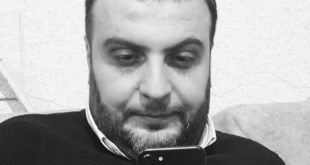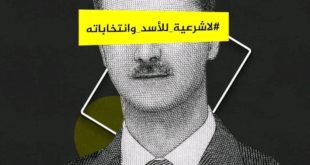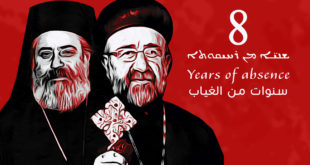ADO-World.org
06-February-2012
MOSCOW- Russia may be seeking a "controlled demolition" of Syrian President Bashar al-Assad’s rule to save its sole major foothold in the Arab world against Western rivals when its foreign minister and spy chief hold rare talks in Damascus this week.
Moscow announced the high-stakes mission hours on Saturday hours before Russia and China, in a move that outraged much of the world and Syria’s opposition, vetoed a U.N. Security Council resolution meant to halt Assad’s bloody crackdown on a popular revolt by backing an Arab League plan urging him to step down.
Russia Monday condemned as hysterical the angry Western reaction to its veto of the UN resolution.
Foreign Minister Sergei Lavrov expressed frustration that Western states did not postpone Saturday’s UN Security Council vote until after his visit Tuesday to Damascus, where he will deliver a message to President Bashar al-Assad.
"Some comments from the West on the UN Security Council vote, I would say, are indecent and bordering on hysteria," Lavrov told reporters in Moscow after a meeting with Bahraini counterpart Sheikh Khalid bin Ahmed al-Khalifa.
"Such hysterical comments are aimed at suppressing what is actually happening and what has happened," said Lavrov.
"It reminds me of the proverb: ‘he who gets angry is rarely right’," he added.
Lavrov reaffirmed Russia’s position that the resolution was wrong to blame Assad’s regime for the violence and should have also taken aim at the opposition.
"In Syria there is more than one source of violence. There are several there," he said.
Russian news agency ITAR-TASS said that alongside the head of the Russian Foreign Intelligence Agency (SVR) Mikhail Fradkov, Lavrov would deliver a message from President Dmitry Medvedev to Assad.
But Lavrov would not divulge the purpose of the mission.
"When you go on a mission on the order of the head of state then the purpose of the mission is usually only revealed to the person it is addressed to. If I tell you everything now then what is the point?"
"You can talk to people just through the media. And some countries prefer to do things this way. But foreign policy demands a more classical approach."
Lavrov regretted that Western powers had not postponed the vote, saying that Moscow had asked for a delay of a few days so that the outcome of his visit to Syria could be discussed.
"The co-authors of the resolution over-hastily decided to put it to a vote," he said.
Foreign Ministry statement on Sunday indicated Lavrov and Fradkov would at least press Assad, who has ruled out resigning and rejected his opponents as "terrorists," to make compromises.
President Dmitry Medvedev ordered the mission, it said, because Russia "firmly intends to seek the swiftest stabilization of the situation in Syria on the basis of the swiftest implementation of democratic reforms whose time has come."
After a veto that angered the West and deepened the resolve of Assad’s foes, Russia faces a daunting task: how to leverage longstanding ties with an embattled Syrian leader into traction firm enough to keep Russia from losing its most solid arena of influence in the Middle East.
Moscow could be tempted to play for time by seeking to shore up Assad, whose government has billions of dollars worth of contracts for Russian arms and hosts a naval maintenance and supply facility on its Mediterranean coast that is Russia’s only military base outside the former Soviet Union.
But many analysts say Moscow’s veto was driven less by love for Assad or hope of a return to Syria’s pre-conflict status quo than by Prime Minister Putin’s desire to show – as he seeks a six-year term in a March presidential vote -, that he will defy Western efforts to impose political change on sovereign states in regions of big power competition.
By twice vetoing U.N. resolutions that would have condemned Assad, and resisting pleas from visiting Syrian opposition groups to join calls for his resignation, Moscow may have ruined any remaining chance it had of being accepted by the opposition. A superficial shakeup would do little to change that.
The Lavrov-Fradkov trip bears echoes of past missions by Soviet and Russian officials to sort out the problems of foreign leaders under pressure or attack from the United States.
Yevgeny Primakov, who served as Russia’s foreign intelligence director, foreign minister and prime minister, met Saddam Hussein in Baghdad in 1991, during Operation Desert Storm, and in 2003 – sent by Putin – before the U.S.-led invasion of Iraq.
In 1999, Primakov traveled to Belgrade to meet Slobodan Milosevic in an effort to extract moves that would end the NATO bombing of Yugoslavia during the Kosovo conflict.
None of those missions produced major concessions by Primakov’s host or deals to avert or stop the hostilities.
Russia has said for months that it has been urging Assad to implement reforms faster. And with the United States and Europe promising to push harder to remove Assad after the veto, Russia’s diplomatic maneuvering may fall short.
Russia’s veto signaled that Putin, who is likely to win a six-year term this year and could remain president until 2024, will do all he can to protect Russian geo-strategic interests and stop the United States and its European allies from imposing their will in regions of common interest.
In practice, it may have the opposite effect.
The Gulf Cooperation Council (GCC) states of Saudi , Bahrain, Kuwait, Oman, Qatar and the United Arab Emirates are the most likely to wield a stronger influence in a future Syria, he said.
Source: Middle East Online
 Assyrian Democratic Organization ADO
Assyrian Democratic Organization ADO






